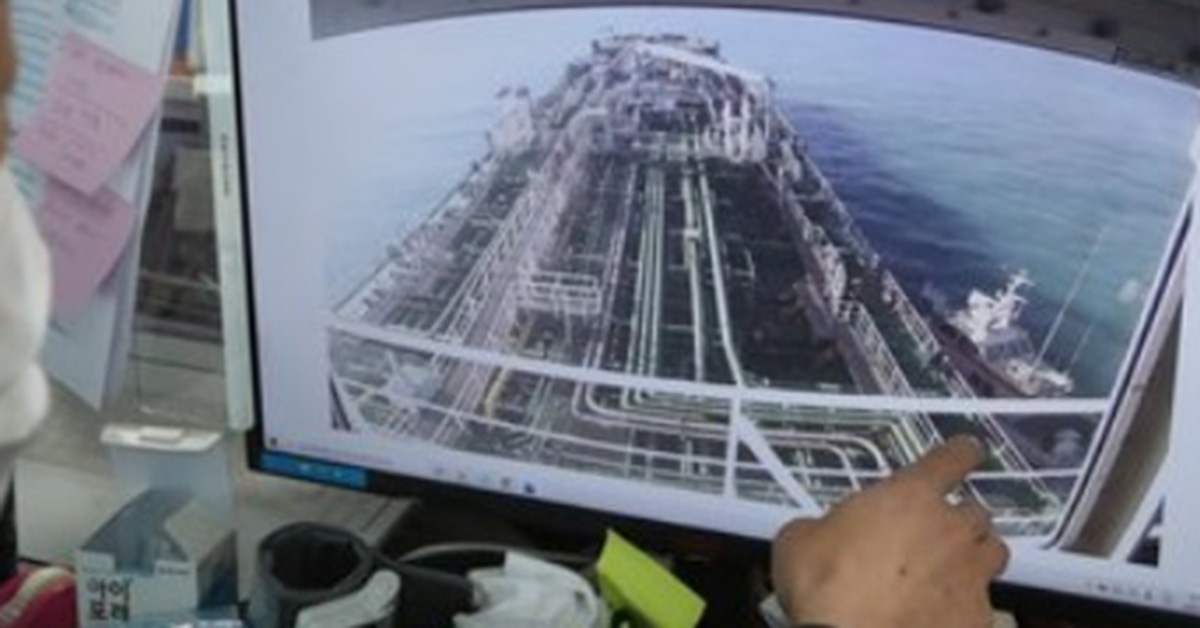The two countries are discussing a plan for Iran to purchase a COVID-19 vaccine using the frozen crude oil export proceeds from a commercial bank in Korea. As the United States recently decided to approve the purchase of the Corona 19 vaccine as an exception to sanctions against Iran, such a plan became visible.
South Korean oil tanker captured in Iran during negotiations
Iranian spokesman “Korea held 7 billion dollars hostage”
An official from the Ministry of Foreign Affairs said on the 5th, “Iran said it would secure a vaccine by paying frozen funds to the COVAX facility, and for this, it received special approval from the US Treasury.” COVAX Facility is an international project to jointly purchase and distribute COVID-19 vaccines led by the World Health Organization (WHO). If you make an upfront payment, you will receive a vaccine that will be developed later. As the U.S. withdrew from the nuclear agreement in 2018 and entered into sanctions against Iran, the price of Iran’s oil exports frozen to IBK Industrial Bank and Woori Bank amounted to 7 billion dollars (about 7.57 trillion won). Iran requested the South Korean government to deposit this money to Kovacs Facility as a vaccine payment, and the government received special approval through consultation with the US Treasury Department.
Dahn officials of the Ministry of Foreign Affairs explained, “In the process of paying for the Kobex facility, Iran is not able to make a final decision because of concerns that the money could go into the US government if the won is converted into dollars.”
In this regard, Hosein Tanhai, chairman of the Iran-Korea Chamber of Commerce and Industry, told ILNA News on the 3rd, “We met with Senior Vice President Eshak Jahangiri on the 2nd to discuss how to use Iranian funds frozen in Korea.” I suggested a way to use up this money to buy.”
What is Iran’s intention to capture and detain ships?
![In the afternoon, an employee of the Korean Chemie Ship Management Company in Haeundae-gu, Busan checks the CCTV that shows the Korean Chemie being captured by the Iranian Revolutionary Guard. [뉴스1]](https://i0.wp.com/pds.joins.com/news/component/htmlphoto_mmdata/202101/05/20c630ed-1db9-4f51-91a5-0615c89ab7f5.jpg?w=560&ssl=1)
In the afternoon, an employee of the Korean Chemie Ship Management Company in Haeundae-gu, Busan checks the CCTV that shows the Korean Chemie being captured by the Iranian Revolutionary Guard. [뉴스1]
In the context of such discussions, the Iranian Revolutionary Guards captured the Korean Chemie ship on the 4th, and the negotiations between the two countries are expected to be affected. Iranian authorities told the Korean government about the capture, saying, “As Korean ships have been conducting marine pollution activities several times, a complaint came in from the Iranian Maritime Administration and started judicial proceedings.” An official from the Ministry of Foreign Affairs also said, “I asked if there was any intention to negotiate this time by linking the detention of the ship and the payment in won, but the Iranian side had a primary answer, saying,’That is absolutely not.”
Nevertheless, the Iranian government is not hiding its dissatisfaction with the $7 billion. Iranian government spokesman Ali Ravieri said on the 5th that it was South Korea holding the $7 billion of Iranian funds hostage in response to the criticism that the capture was hostage.
The purchase of the Corona 19 vaccine using the original frozen funds is an extension of the discussion on expanding humanitarian trade that the Korea-Iran Working Group conducted eight times. Korea has been steadily conducting discussions under water to expand trade with Iran for humanitarian items such as medical supplies. In fact, there was a result of exporting about 20 items, including medicines and medical devices, to Iran. An official from the Ministry of Foreign Affairs said, “Iran has been an atmosphere of appreciation that only South Korea is sending medicines to Iran from around the world, and it is also true that feelings of enmity have diminished within this situation.”
![Foreign Minister Kang Kyung-wha presided over a countermeasure meeting on Iran's detention of Korean ships on the 5th to check the situation. [외교부 제공]](https://i0.wp.com/pds.joins.com/news/component/htmlphoto_mmdata/202101/05/23c8c96c-7c73-4e36-8964-e666178466e3.jpg?w=560&ssl=1)
Foreign Minister Kang Kyung-wha presided over a countermeasure meeting on Iran’s detention of Korean ships on the 5th to check the situation. [외교부 제공]
However, this time, the arrest of Korean ships emerged as an unexpected variable in relations between the two countries. On the afternoon of the 5th, the Ministry of Foreign Affairs summoned Iranian Ambassador Said Badamchi Shavestari to Korea at the Ministry of Foreign Affairs’ building on the afternoon of the 5th, expressing regret and urging the removal of detention as soon as possible. Ambassador Shavestari said to the reporters, “(The sailors) are all safe. There is no need to worry about their health.”
In spite of the South Korean government and Iran’s denial, there are also observations that the issue of the release of detainees and the freeze funds are linked together. The Ministry of Foreign Affairs held an emergency meeting on the afternoon of the 5th, presided over by Foreign Minister Kang Kyung-wha, who served as the head of the countermeasures headquarters. At this meeting, the Ministry of Foreign Affairs decided to send a consular officer belonging to the Iranian embassy to the port of Bandar Abbas, Iran, where the ship is detained. An official from the Ministry of Foreign Affairs said, “As there are sailors of Myanmar, Vietnamese, and Indonesian nationality on board, we plan to cooperate with the relevant countries as well.”
Reporter Jeong Jin-woo [email protected]
